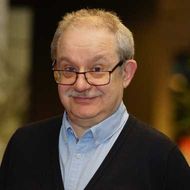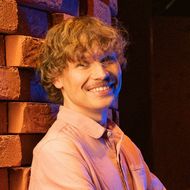- A
- A
- A
- АБB
- АБB
- АБB
- А
- А
- А
- А
- А
- Национальный исследовательский университет «Высшая школа экономики»
- Факультет социальных наук
- Департамент социологии
- Мероприятия
- Международный семинар департамента социологии и кафедры публичной политики “Urban legacies of sports mega events: the case of FIFA World Cup and Olympics in Rio de Janeiro”
-
Подразделения
- Кафедры
- Базовые кафедры
-
Образование
- Бакалавриат
-
Магистратура
-
- Магистерская программа «Комплексный социальный анализ»
- Магистерская программа «Социальный анализ рынков на цифровых и опросных данных»
- Магистерская программа «Социология публичной сферы и цифровая аналитика»
- Магистерская программа «Сравнительные социальные исследования»
- Магистерская программа «Демография»
-
- Аспирантура
- Открытые онлайн-курсы
- Школа маркетинговых исследований
-
Департамент
- О департаменте
- Научная деятельность
- Журналы
- Методические материалы
- Сотрудники
Адрес: 101000, Москва,
ул. Мясницкая, д. 11.
Телефон:
8 (495) 772-95-90*12349
E-mail: izangieva@hse.ru
Наша миссия – научить видеть, думать и действовать. Видеть – проблемы современного общества; изменения, происходящие в его социальной структуре. Думать – свободно, доказательно, открыто. Действовать – на благо обществу, осуществляя свои профессиональные проекты. Для этого мы стремимся к совершенству в преподавании и исследовательской деятельности, создавая атмосферу, благоприятную для обмена опытом и знаниями между преподавателями и студентами.
Rozhdestvenskaya E., Isupova O.
Switzerland: Springer, 2024.
Пути России. Журнал cоциальных и этнографических исследований. 2024. Т. 2. № 2. С. 66-79.
Rozhdestvenskaya E., Isupova O.
In bk.: Biographical Perspectives on Lives Lived During Covid-19 Global Narratives and International Methodological Innovations. Switzerland: Springer, 2024. Ch. 7. P. 147-166.

Международный семинар департамента социологии и кафедры публичной политики “Urban legacies of sports mega events: the case of FIFA World Cup and Olympics in Rio de Janeiro”


Докладчик: Эйнар Браатен, профессор-исследователь (Норвежский институт городских и региональных исследований, Университетский колледж прикладных наук Осло и Акерсхуса)
Тема доклада: “Urban legacies of sports mega events: the case of FIFA World Cup and Olympics in Rio de Janeiro”
Время: Понедельник 15 января, 18:10.
Место: Москва, Мясницкая 11, Аудитория 325.
Рабочий язык: английский.
Для заказа пропуска в НИУ ВШЭ необходимо написать Екатерине Соколовой (ksokolova@hse.ru).
Аннотация доклада:
Brazil and Russia celebrate the second decade of the 21st century by hosting the world’s two biggest sporting events, the FIFA World Cup for men and the Olympic Games, only a few years apart. Like the other members of the BRICS family, the two countries share an optimistic view of mega events and mega projects: with a proper contribution from the state and effective planning of private-public collaboration, the hosting country and cities can reap large and long-term economic, social and cultural benefits.
This talk will address the planning process and the impacts of the sports mega events in Brazil and Rio de Janeiro in particular, which hosted the World Cup final in 2014 and the Summer Olympic Games in 2016. The planning for mega events in Rio de Janeiro started in a context of urban crisis in the 1990s and early 2000s, and were held amidst a quite different political and economic crisis in the following decade. These contexts will be elaborated upon to understand how they shaped the mega events themselves.
The impacts of the mega sports events in Rio will in this paper be looked upon through the lens of ‘legacy’, a discourse supported by the IOC (International Olympic Committee) regarding long-term benefits for the host city and its citizens. The impacts of the main elements of the ‘legacy plan’ – transport infrastructure, sports infrastructure, environment, urban upgrading and housing – will be assessed. My argument is that impacts of plans are largely influenced by the way the plans are implemented (the issue of participation), on the one hand, and by their contexts (unpredictable and shifting), on the other.
- О ВЫШКЕ
- Цифры и факты
- Руководство и структура
- Устойчивое развитие в НИУ ВШЭ
- Преподаватели и сотрудники
- Корпуса и общежития
- Закупки
- Обращения граждан в НИУ ВШЭ
- Фонд целевого капитала
- Противодействие коррупции
- Сведения о доходах, расходах, об имуществе и обязательствах имущественного характера
- Сведения об образовательной организации
- Людям с ограниченными возможностями здоровья
- Единая платежная страница
- Работа в Вышке
- ОБРАЗОВАНИЕ
- Лицей
- Довузовская подготовка
- Олимпиады
- Прием в бакалавриат
- Вышка+
- Прием в магистратуру
- Аспирантура
- Дополнительное образование
- Центр развития карьеры
- Бизнес-инкубатор ВШЭ
-
http://www.minobrnauki.gov.ru/
Министерство науки и высшего образования РФ
-
https://edu.gov.ru/
Министерство просвещения РФ
-
http://www.edu.ru
Федеральный портал «Российское образование»
-
https://elearning.hse.ru/mooc
Массовые открытые онлайн-курсы
- © НИУ ВШЭ 1993–2024 Адреса и контакты Условия использования материалов Политика конфиденциальности Карта сайта
- Редактору




